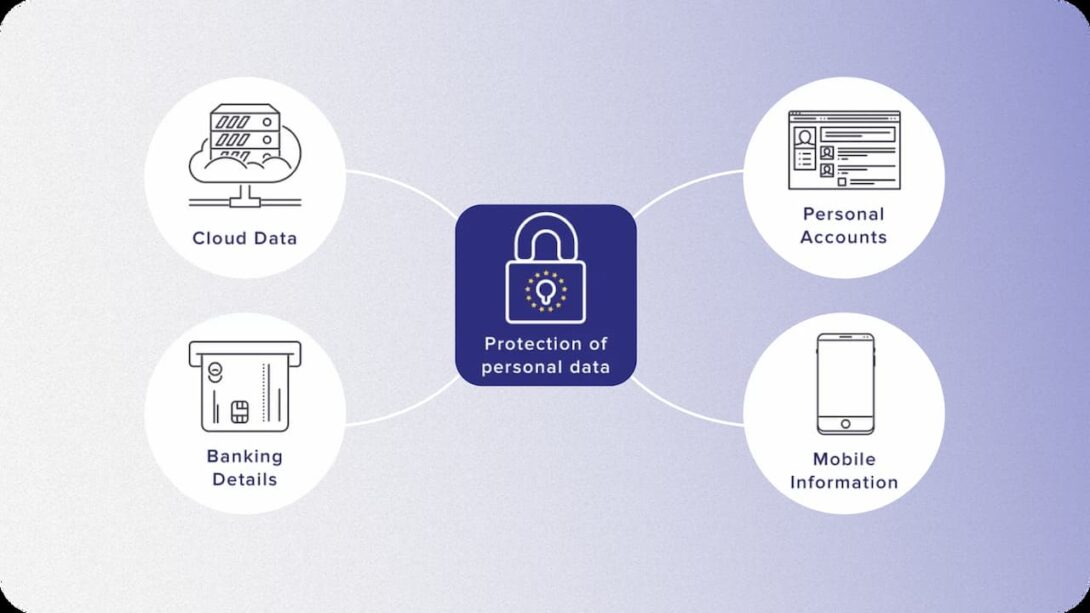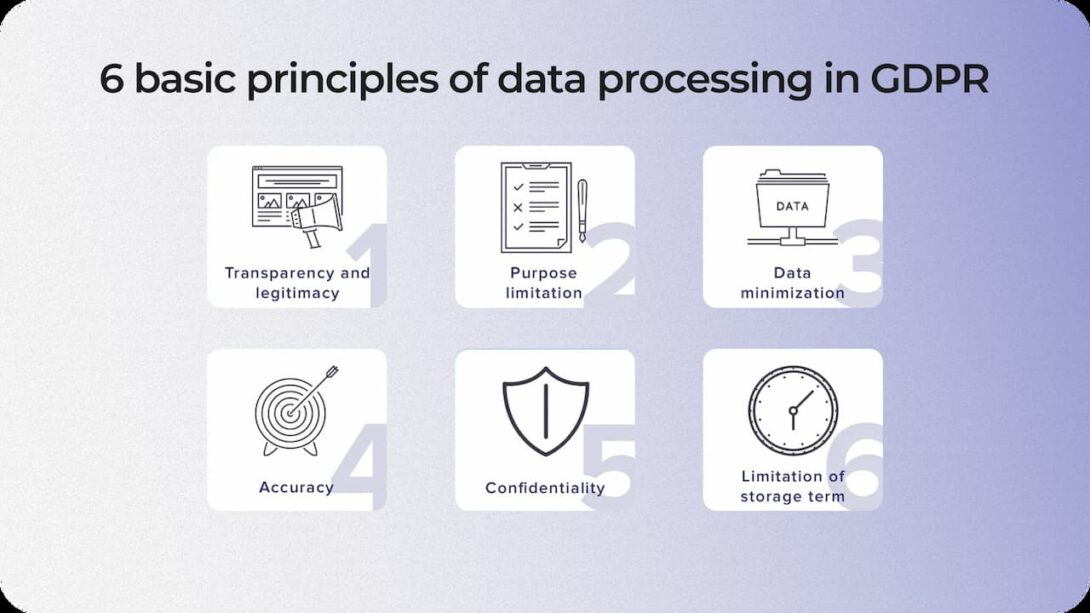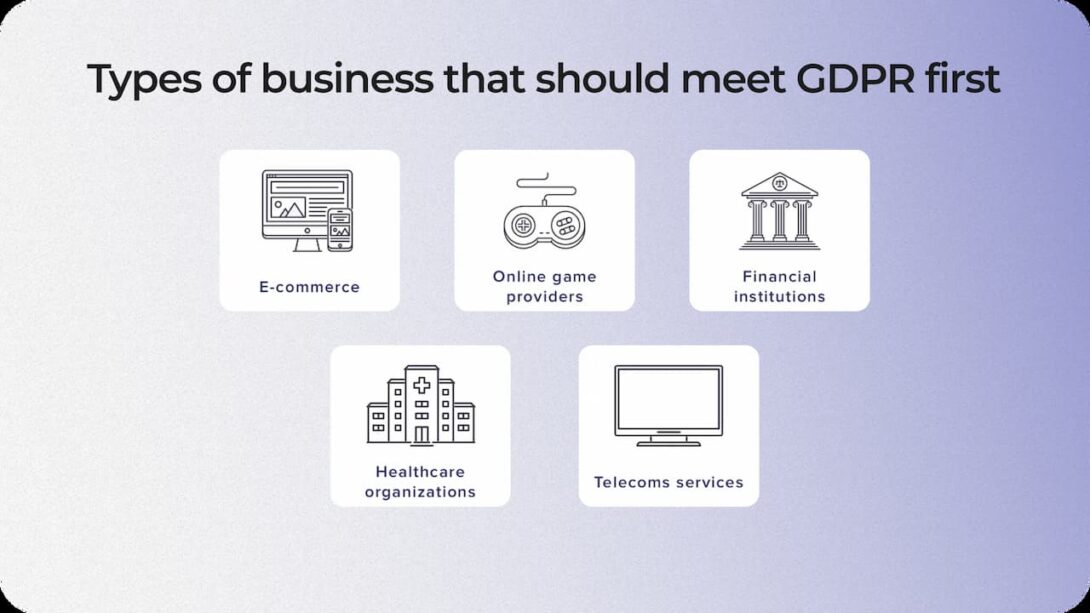Numerous applications are available for tracking activities, managing smart homes with intelligent gadgets, monitoring heart rates, and virtual purchasing. However, a significant privacy risk is associated with employing these software tools to do these activities.
For this reason, the General Data Protection Regulation (GDPR) was implemented around four years ago. Since the EU adopted these standards, anyone in the app development sector must abide by them or face a punishment of up to 20 million euros. What steps may be taken to guarantee GDPR adherence?
GDPR Basics You Should Know About
Allow us to clarify what GDPR means in simple terms. It consists of regulations that empower EU citizens to have greater control over their data. Additionally, it aims to standardize information protection laws across the European Union and bolster personal data security.

What info is guarded by GDPR
Personal data refers to information that can identify an individual. This includes identification data such as names, surnames, addresses, passport numbers, web info such as IP addresses and cookies, health records, biometrics, racial and ethnic information, and religious and personal beliefs.
The GDPR (General Data Protection Regulation) is based on six fundamental principles of information processing.

GDPR functioning principles
Info protection is of utmost significance and should be considered by all companies that conduct frequent extensive surveys, monitor individuals, or build EHR/EMR systems or criminal records. A Data Protection Officer (DPO) position is designated to oversee and ensure adherence to information protection policies.
GDPR Affected Businesses
Compliance with GDPR is mandatory for all business owners who handle and process the personal data of EU citizens, including those outside the EU. More information on GDPR rules can be found on the official website.
Certain types of businesses should ensure they are adequately prepared for forthcoming regulations.
E-commerce organizations and financial institutions handle the personal data of their users daily, and complying with GDPR is their primary obligation. To ensure compliance, businesses in e-commerce and finance must adopt stringent measures to protect user information, including enhanced encryption, secure payment gateways, and transparent data handling policies. The GDPR serves as a regulatory framework and compels these entities to prioritize user privacy, fostering trust and loyalty among customers who are increasingly mindful of how their personal information is managed online.
Healthcare organizations. If you have a medical app or healthcare website that handles records for numerous individuals, or if you plan to hire a service to develop a medical mobile app, then the General Data Protection Regulation also applies to your business. Healthcare providers and app developers alike must implement robust measures to safeguard patient data, ensuring not only legal compliance but also building a foundation of trust with individuals seeking medical services in an increasingly digitalized healthcare landscape. The GDPR’s impact underscores the critical need for ethical and secure data practices within the healthcare ecosystem.
Online game providers. When playing online games, users often have to give out personal information. This is now regulated by GDPR, which has stricter rules about getting consent, especially from minors. The age at which consent is needed can differ in different EU countries, ranging from 13 to 16. Because of this, online game providers have to verify identities more thoroughly and get explicit consent from users above the specified age limit. Children may need to fully understand the risks, consequences, and rights related to their data. Parents or legal representatives can permit data processing for children who are allowed to play online games.
Telecoms services. Internet Service Providers have the primary responsibility of storing users’ personal information and ensuring that this information is stored with the consent of the users.
The General Data Protection Regulation (GDPR) applies to various entities. Therefore, if you are involved in any of the abovementioned businesses, it is advisable to gather all necessary information to avoid penalties and violations.

Wrapping Up
GDPR is the essential regulatory basis for EU-based businesses to comply with to protect their company information and avoid violations. If you want to know more about creating GDPR-compliant software, you should choose an experienced software provider to help you. The specialists will deliver you a GDPR-compliant solution for your business, which can save business data reliably and attract more customers to your company, raising your profits.